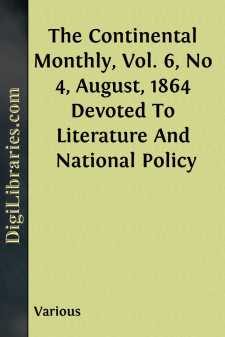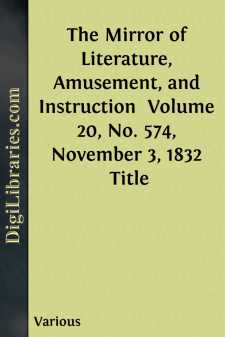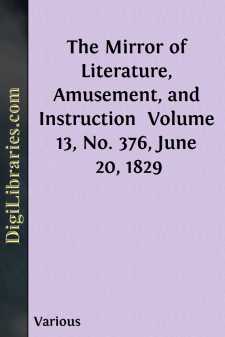Categories
- Antiques & Collectibles 13
- Architecture 36
- Art 48
- Bibles 22
- Biography & Autobiography 815
- Body, Mind & Spirit 144
- Business & Economics 28
- Children's Books 18
- Children's Fiction 14
- Computers 4
- Cooking 94
- Crafts & Hobbies 4
- Drama 346
- Education 58
- Family & Relationships 59
- Fiction 11833
- Games 19
- Gardening 17
- Health & Fitness 34
- History 1378
- House & Home 1
- Humor 147
- Juvenile Fiction 1873
- Juvenile Nonfiction 202
- Language Arts & Disciplines 89
- Law 16
- Literary Collections 686
- Literary Criticism 179
- Mathematics 13
- Medical 41
- Music 40
- Nature 179
- Non-Classifiable 1768
- Performing Arts 7
- Periodicals 1453
- Philosophy 65
- Photography 2
- Poetry 896
- Political Science 203
- Psychology 44
- Reference 154
- Religion 515
- Science 126
- Self-Help 85
- Social Science 82
- Sports & Recreation 34
- Study Aids 3
- Technology & Engineering 59
- Transportation 23
- Travel 463
- True Crime 29
Our website is made possible by displaying online advertisements to our visitors.
Please consider supporting us by disabling your ad blocker.
The Continental Monthly, Vol. 6, No 4, August, 1864 Devoted To Literature And National Policy
by: Various
Categories:
Description:
Excerpt
SOME USES OF A CIVIL WAR.
War is a great evil. We may confess that, at the start. The Peace Society has the argument its own way. The bloody field, the mangled dying, hoof-trampled into the reeking sod, the groans, and cries, and curses, the wrath, and hate, and madness, the horror and the hell of a great battle, are things no rhetoric can ever make lovely.
The poet may weave his wreath of victory for the conqueror; the historian, with all the pomp of splendid imagery, may describe the heroism of the day of slaughter; but, after all, and none know this better than the men most familiar with it, a great battle is the most hateful and hellish sight that the sun looks on in all his courses.
And the actual battle is only a part. The curse goes far beyond the field of combat. The trampled dead and dying are but a tithe of the actual sufferers. There are desolate homes, far away, where want changes sorrow into madness. Wives wail by hearthstones where the household fires have died into cold ashes forever more. Like Rachel, mothers weep for the proud boys that lie stark beneath the pitiless stars. Under a thousand roofs—cottage roofs and palace roofs—little children ask for 'father.' The pattering feet shall never run to meet, upon the threshold, his feet, who lies stiffening in the bloody trench far away!
There are added horrors in civil war. These forms, crushed and torn out of all human semblance, are our brothers. These wailing widows, these small fatherless ones speak our mother language, utter their pain in the tongue of our own wives and children. Victory seems barely better than defeat, when it is victory over our own blood. The scars we carve with steel or burn with powder across the shuddering land, are scars on the dear face of the Motherland we love. These blackened roof-trees, they are the homes of our kindred. These cities, where shells are bursting through crumbling wall and flaming spire, they are cities of our own fair land, perhaps the brightest jewels in her crown.
Ay! men do well to pray for peace! With suppliant palms outstretched to the pitying God, they do well to cry, as in the ancient litany, 'Give peace in our time, O Lord!' Let the husbandman go forth in the furrow. Let the cattle come lowing to the stalls at evening. Let bleating flocks whiten all the uplands. Let harvest hymns be sung, while groaning wagons drag to bursting barns their mighty weight of sheaves. Let mill wheels turn their dripping rounds by every stream. Let sails whiten along every river. Let the smoke of a million peaceful hearths rise like incense in the morning. Let the shouts of happy children, at their play, ring down ten thousand valleys in the summer day's decline. Over all the blessed land, asleep beneath the shadow of the Almighty hand, let the peace of God rest in benediction! 'Give peace in our time, O Lord!'
And yet the final clause to, every human prayer must be 'Thy will be done!' There are things better far than peace. There are things more loathely and more terrible than, the horror of battle and 'garments rolled in blood.' Peace is blessed, but if you have peace with hell, how about the blessedness? A covenant with evil is not the sort of agreement that will bring comfort. A truce with Satan is not the thing that it will do to trust. There are things in this world, without which the prayer for peace is 'a witch's prayer,' read backward to a curse.
That is to say, whether peace is good depends entirely on the further question, With whom are you at peace? Whether war is evil depends on the other question, With whom are you at war? In one most serious and substantial point of view, human life is a battle, which, for the individual, ends only with death, and, for the race, only with the Final Consummation. The tenure of our place and right, as children of God, is that we fight evil to the bitter end. 'The Prince of Peace' Himself came 'not to send peace,' in this war, 'but a sword.'
We may venture, then, to say that there are some wars which are not all evil. They are terrible, but terrible like the hurricane, which sweeps away the pestilence; terrible like the earthquake, on whose night of terror God builds a thousand years of blooming plenty; terrible like the volcano, whose ashes are clothed by the purple vintages and yellow harvests of a hundred generations. The strong powers of nature are as beneficent as strong. The destroying powers are also creating powers. Life sits upon the sepulchre, and sings over buried Death through all nature and all time. War, too, has its compensations.
For years, amid the world's rages, we had peace. The only war we had, at all events, was one of our own seeking, and a mere playing at war. Many of us thought it would be so always. We believed we had discovered a method of settling all the world's difficulties without blows. The peace people had their jubilee. They talked about the advance of intelligence, and the softening power of civilization. They placed war among the forgotten horrors of a dead barbarism. They proved that commerce had rendered war impossible, because it had made it against self-interest. They talked about reason and persuasion, and moral influences. They asked, 'Why not settle all troubles in a grand world's congress, some huge palaver and paradise of speechmakers, where it will be all talk and voting and no blows?' Why not, indeed?...












